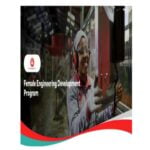
Study and Work Opportunities in Canada 2024
Canada is a popular destination for international students looking for a high-quality education and the opportunity to work and gain valuable experience. However, there are some important changes to be aware of for 2024:
Temporary Cap on Study Permits: The Canadian government has implemented a temporary two-year cap on the number of study permits issued. This means that competition for spots will be higher, and it’s essential to apply early and meet all eligibility requirements.
Changes to Post-Graduation Work Permits (PGWPs): Starting September 1, 2024, students who graduate from programs offered by private-public partnerships (PPPs) will not be eligible for PGWPs. Additionally, the PGWPs for master’s graduates have been increased to three years.
SEE ALSO: Z Zurich Foundation Scholarship 2024 for Studies in Canada
Despite these changes, Canada remains an attractive option for international students. Here’s what you need to know:
Eligibility:
- You must be a citizen of a country other than Canada.
- You must be accepted into a designated learning institution (DLI).
- You must meet the language proficiency requirements (English or French).
- You must have sufficient funds to support yourself during your studies.
Types of Study Permits:
- Student visa: Allows you to study full-time at a DLI.
- Student direct stream: For students from select countries with streamlined processing.
Work While You Study:
- You can work on campus without a work permit for up to 20 hours per week during the school year and full-time during breaks.
- Off-campus work requires a work permit, which you can apply for after six months of study.
Post-Graduation Work Permit (PGWP):
- Allows you to work in Canada after graduation to gain Canadian work experience.
- Eligibility depends on your program of study and length.
- Can be a stepping stone to permanent residency.
Cost of Studying in Canada:
- Tuition fees vary depending on the institution and program.
- Living expenses are also higher in major cities.
- Scholarships and financial aid are available to help offset costs.
Popular Study Destinations:
- Toronto
- Vancouver
- Montreal
- Calgary
- Ottawa
In-Demand Fields of Study:
- Technology
- Engineering
- Healthcare
- Business
- Education
An Overview for 2024 Tuition Fees in Canada:
Key Factors Affecting Tuition Fees:
- Student status: International students generally pay higher tuition fees than domestic students (Canadian citizens or permanent residents).
- Level of study: Postgraduate programs typically cost more than undergraduate programs.
- Program and institution: Specialized programs and universities with higher reputations often have higher fees.
- Province of study: Tuition fees can vary significantly across different provinces.
- Domestic undergraduate: CA$6,463 per year
- International undergraduate: CA$29,714 per year
- Domestic postgraduate: CA$7,056 per year
- International postgraduate: CA$21,100 per year
Additional Costs:
Living expenses: Housing, food, transportation, and other living costs can vary depending on your lifestyle and chosen location.
Health insurance: International students often need to purchase private health insurance.
Other fees: Some universities may charge additional fees, such as application fees, student activity fees, and technology fees.
Tips for Reducing Costs:
- Apply for scholarships and financial aid: Numerous scholarships and financial aid options are available for international students. Research and apply early to maximize your chances of receiving assistance.
- Consider studying in a province with lower tuition fees: Provinces like Newfoundland, Labrador, and Manitoba generally have lower tuition fees than Ontario and British Columbia.
- Explore alternative program options: Consider shorter programs or online options that might be more affordable.
- Work part-time: International students are allowed to work on campus without a work permit for up to 20 hours per week during the school year and full-time during breaks. Off-campus work requires a work permit, but it can be a great way to gain experience and offset some costs.
Always recall:
Tuition fees are just one aspect of the overall cost of studying in Canada. Carefully consider all expenses before making a decision. Research specific programs and institutions to get accurate estimates of their tuition fees and other associated costs.
Utilize resources like EduCanada and university websites for scholarship and financial aid information. By carefully planning and exploring your options, you can find a study program in Canada that fits your budget and academic goals.
SEE ALSO: Government of Canada Scholarships to Study in Canada 2024
Job Opportunities in Canada for International Students 2024:
Studying in Canada is a dream, but let’s face it, tuition can be a nightmare. Fear not, intrepid student! Here’s where work permits become your golden ticket to funding your Canadian adventure while gaining invaluable experience.
Work Permit Wonderland:
- On-Campus Hustle: No permits needed! Dive into part-time gigs (libraries, cafes, research labs) for up to 20 hours/week during semesters, and full-time during breaks. Think of it as your on-campus playground!
- Off-Campus Odyssey: After 6 months of dedicated studies, an off-campus work permit unlocks a world of possibilities. Explore diverse industries, network like a pro, and boost your resume with real-world skills. Remember, plan ahead and apply smartly!
- Co-op & Internship Treasures: Blend theory with practice through these gems. Earn while you learn, impress future employers, and build a stellar resume – who doesn’t love a multi-tasker?
Remember, Planning is Your Superpower:
- Eligibility Ninja: Different permits for different needs. Research, choose wisely (align with program & work duration), and become an eligibility master!
- Application Ace: Get ready to conquer the application arena. Gather documents, meet requirements, and submit early – procrastination is your enemy!
- Financial Finesse: Even with work plans, showcasing sufficient funds for your studies is crucial. Prove you’ve got it covered and avoid application roadblocks.
Hot Job Sectors for International Rockstars:
- Tech Titan: Unleash your inner AI guru or cybersecurity champion. The tech scene is booming, and waiting for your innovative spirit!
- Healthcare Hero: Nurses, doctors, and healthcare professionals are in high demand. Make a difference while building a rewarding career.
- Education Extraordinaire: Teachers, assistants, and education wizards – nurture young minds and shape the future.
- Business Brilliance: Marketing whizzes, finance ninjas, and management masters – the business world awaits your expertise. Showcase your skills and climb the corporate ladder!
Don’t Go It Alone:
- University Allies: Your university’s career center is your secret weapon. Utilize their workshops, job fairs, and expert guidance to land your dream gig.
- Immigration Gurus: Feeling lost in the permit maze? Seek professional help from immigration consultants or lawyers. They’ll ensure your journey is smooth and stress-free.
Studying in Canada can be life-changing, but don’t underestimate the power of work permits. With careful planning, the right opportunity, and a dash of initiative, you can turn your educational adventure into a career-launching experience. So, pack your bags, embrace the opportunities, and work your way towards achieving your Canadian dreamscapes!
Most Affordable Universities in Canada for International Students in 2024:
Studying in Canada can be an amazing experience, but the cost of tuition can be a major hurdle, especially for international students. Here’s a list of some of the most affordable universities in Canada for international students in 2024, based on average annual tuition fees:
1. Memorial University of Newfoundland (MUN): Located in St. John’s, Newfoundland and Labrador, MUN boasts the lowest average tuition fees for international students among Canadian universities, at CA$15,427 per year.
2. University of Northern British Columbia (UNBC): Situated in Prince George, British Columbia, UNBC offers affordable tuition fees starting from CA$8,147 per year, depending on your program.
3. Brandon University: This university in Brandon, Manitoba, has an average tuition fee of CA$ 14,430 per year for international students, making it an attractive option for budget-conscious individuals.
4. Université de Saint-Boniface: Located in Winnipeg, Manitoba, this French-language university offers undergraduate programs with tuition fees averaging CA$16,850 per year for international students.
5. Canadian Mennonite University (CMU): Situated in Winnipeg, Manitoba, CMU offers a unique learning environment with an average tuition fee of CA$14,890 per year for international students.
6. University of Regina: This university in Regina, Saskatchewan, has an average tuition fee of CA$18,843 per year for international students, making it a more affordable option compared to universities in larger cities.
7. University of Saskatchewan: Located in Saskatoon, Saskatchewan, this university offers a variety of programs with an average tuition fee of CA$20,339 per year for international students.
8. Mount Royal University: Situated in Calgary, Alberta, Mount Royal University offers undergraduate programs with an average tuition fee of CA$15,872 per year for international students.
9. Cape Breton University: Located in Sydney, Nova Scotia, Cape Breton University offers affordable tuition fees starting from CA$ 14,684 per year for international students, depending on their program.
10. University of Winnipeg: Situated in Winnipeg, Manitoba, this university has an average tuition fee of CA$ 19,632 per year for international students, but it offers various scholarships and financial aid opportunities.
Important Note:
- Tuition fees can vary depending on your program of study and level of study.
- It’s important to consider other costs besides tuition, such as living expenses, health insurance, and travel costs.
- Research each university thoroughly to ensure it’s a good fit for you academically and culturally.
- Remember, affordability is just one factor to consider when choosing a university in Canada. Research your options carefully and choose the program that best suits your academic goals and budget.
SEE ALSO: Vanier Canada Graduate Scholarships 2024 for International Students
CONCLUSION
Canada offers world-class education with over 30 top-ranked universities and affordable tuition fees, supported by scholarships and financial aid options. Students can gain real-world experience through on-campus jobs and off-campus work permits, enhancing their resumes while studying. Beyond academics, Canada provides a diverse and vibrant lifestyle, with opportunities to explore its natural beauty, multicultural communities, and exciting cities. Studying in Canada is not just about education; it’s an unforgettable adventure.
Additional Resources:
Immigration, Refugees and Citizenship Canada (IRCC),
Designated Learning Institutions List, and
Scholarships and Financial Aid.
Remember:
Research thoroughly before applying, meet all eligibility requirements, and Apply early, especially with the study permit cap, Consider professional help with your application process. I hope this information gives you a good starting point for exploring study and work opportunities in Canada in 2024. Good luck!


